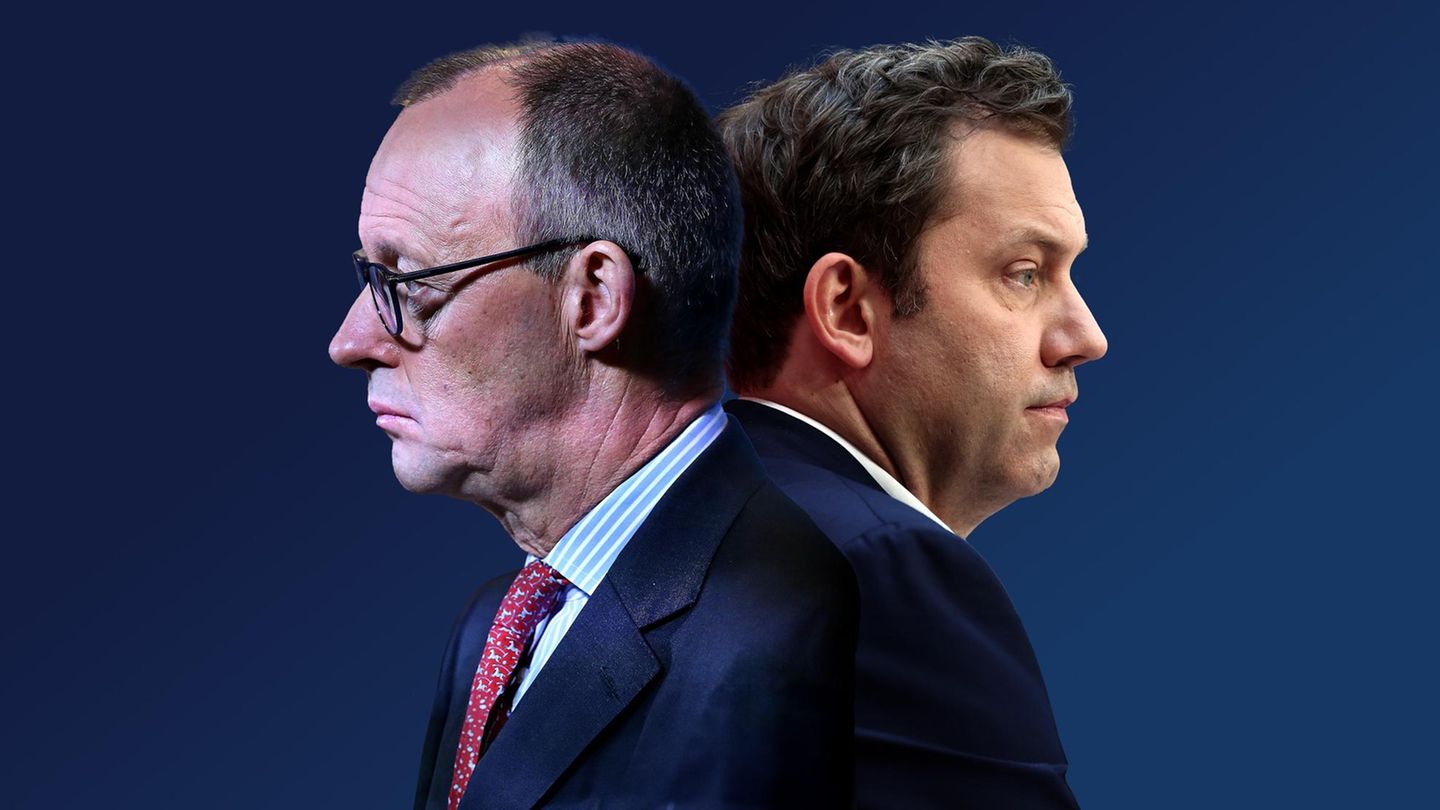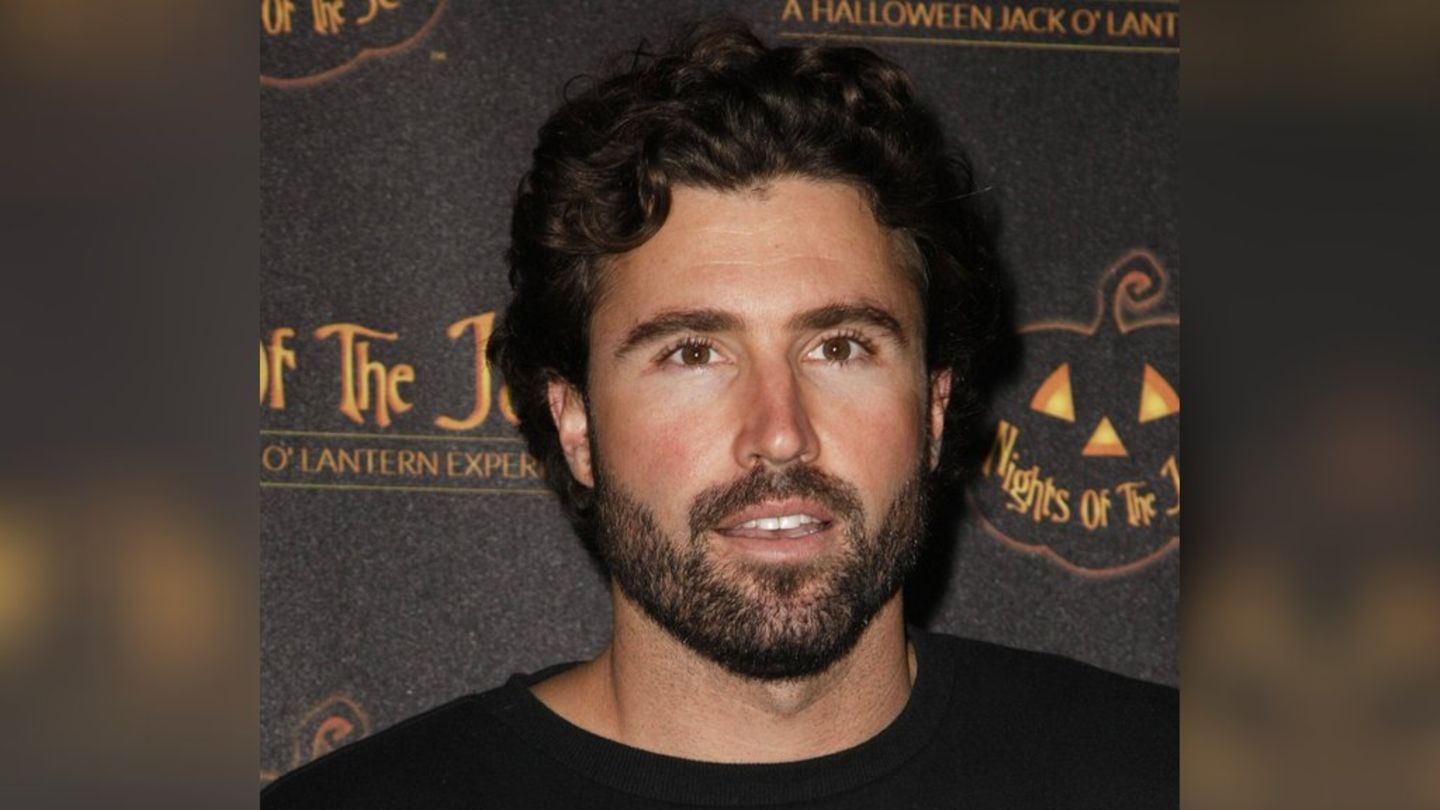Formation
Union and SPD have been probing since today. What happens when nothing becomes of it?
Copy the current link
Add to the memorial list
A grand coalition is the only realistic coalition. If the Union and SPD should fail, only new elections remained. But the way there is complicated and incalculable.
A mind game: It is April 17, 2025, Maundy Thursday. Friedrich Merz wanted to form a government by Easter. In parliamentary society, the candidate for Chancellor and Lars Klingbeil are together again. The conversation takes several hours. But in the end it is clear that the differences between the Union and the SPD cannot be bridged, the mutual distrust is too great. The appeals of Federal President Frank-Walter Steinmeier to respect the election result are also not helped. There is no grand coalition.
And now? A coalition with the AfD rejects Merz. He also does not want to cite a minority government of the Union because it would always be dependent on the support of the AfD. Alice Weidel and Co. could drive Merz in front of him at will. And a mathematically possible coalition with green and left is politically unthinkable. So: new elections. But that is legally, but also more easily in the new composition of the Bundestag than done.
Without GroKo, Friedrich Merz would only remain a minority government
Union and SPD have been probing in Berlin since Friday. The public’s expectations are great. The international situation and the lame economy require a quick government formation. A look at the alternatives that arise when the talks fail should increase the pressure. Because the Basic Law knows no failure of government formation. Paradoxically, new elections are only possible if a new Chancellor is previously elected. The way there would be complicated, long and incalculable in its political consequences.
And how exactly did it look?
Back in the mind game: Olaf Scholz is still sitting in the Chancellery on this Easter weekend of failure. With his question of trust in December, he opened the way for early Bundestag elections. This is not possible this time. Because since the constitution of the new Bundestag on March 25th, Scholz has only been in office. He cannot ask the new parliament the question of trust because it is no longer the Bundestag, whose MPs he was once elected.
Now everyone is looking at Frank-Walter Steinmeier. According to Article 63 of the Basic Law, the Federal President proposes a head of government to the election – usually if several parties have agreed on a coalition with an absolute majority and a chancellor. If this is not the case, as has been the case in Maundy Thursday, it is at the discretion of the head of state to make its own proposal. He doesn’t have to keep a deadline, but if everything is blocked, he has to act.
In order to solve the blockade, Steinmeier would probably propose according to Article 63 Basic Law Friedrich Merz as head of the strongest faction for the election as a chancellor. In the first, possibly also in the second ballot, which would have to take place after another 14 days at the latest, Merz would need the majority of the members of the Bundestag, i.e. 316 votes. However, the Union has only 208. If Merz still achieves the absolute majority in a secret vote, Steinmeier must appoint him.
Such a majority is quite conceivable. Because Merz may be unintentionally expected to vote from the 152 AfD MPs. In order to prevent Weidel’s grace from being prevented, the Union MPs should not vote for their own candidate. It would be a political absurdity.
It is now particularly complicated in the third ballot. If Merz wins with an absolute majority, the Federal President must appoint him. If he only wins with a simple majority, Steinmeier can appoint him – or dissolve the Bundestag and set new elections. This is the needle. For the Union, the problem arose in the third ballot that she would have to choose Merz in order to give him a simple majority. However, it also took the risk that the AfD could help him to make an absolute majority. Then only remained that Merz, hardly appointed and sworn in, immediately asks the question of trust – to lose it.
Tired of the politician mikado
The question is, who could be interested in such a mess? Union and the SPD would be responsible for the failure of a common government. If, for example, the black and red coalition had failed due to the Union’s demands in the migration question, Merz could rely on scoring the topic in a new election campaign.
The SPD, on the other hand, could be tried to set up the country’s most popular politician with Boris Pistorius as a candidate for chancellor and to forget its devastating result with Olaf Scholz. The question would remain whether the Union and SPD could also reduce the share of the AfD votes-or whether the citizens tired by the political mikado would choose the AfD in even larger numbers. The latter would be more likely to be feared.
It is therefore most likely in the mind game that the Union and the SPD will come together again on Tuesday after Easter despite the failure on Maundy Thursday.
Source: Stern
I have been working in the news industry for over 6 years, first as a reporter and now as an editor. I have covered politics extensively, and my work has appeared in major newspapers and online news outlets around the world. In addition to my writing, I also contribute regularly to 24 Hours World.




